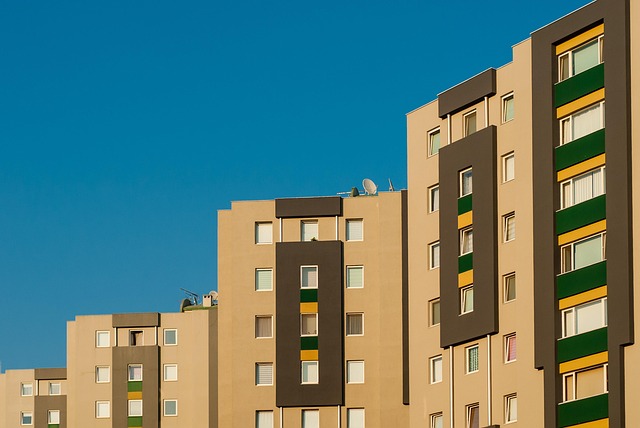How to Find Housing in the Netherlands: Renting vs Buying

When moving to a new country, finding suitable housing is one of the most critical decisions you will make. The Netherlands, with its vibrant cities and picturesque landscapes, offers a variety of options for both renting and buying property. However, understanding the local housing market and making an informed decision between renting and buying can be challenging for newcomers. This article will guide you through the process of finding housing in the Netherlands, highlighting the pros and cons of renting versus buying.
Understanding the Dutch Housing Market
The Dutch housing market is known for its efficiency and organization, but it also has unique characteristics that may differ from what you are accustomed to elsewhere. The market is divided into two main categories: social housing (municipal or subsidized rentals) and private housing (rentals or purchases).
- Social Housing : These properties are managed by housing corporations and are typically more affordable than private rentals. However, they often have strict eligibility criteria, such as income limits or residency requirements.
- Private Housing : This includes both rental properties and homes available for purchase. Private rentals tend to be more expensive but offer greater flexibility, while buying allows you to build equity over time.
Renting in the Netherlands
Renting is a popular choice for expatriates and young professionals who prefer flexibility or are unsure about long-term commitments. Here’s what you need to know:
Steps to Renting a Property
- Research Locations : Decide which city or neighborhood suits your lifestyle. Popular areas like Amsterdam, Utrecht, and The Hague are highly sought after but come with higher prices.
- Use Online Platforms : Websites like Pararius, Funda, and Ikkoopnh.nl list available rentals. Some platforms cater specifically to expats, simplifying the search process.
- Prepare Documentation : Landlords usually require proof of income, employment contracts, and sometimes references from previous landlords.
- Sign a Lease Agreement : Most leases in the Netherlands are either fixed-term (e.g., 1 year) or indefinite. Be sure to read the terms carefully, including clauses on rent increases and termination notices.
- Deposit and Fees : Expect to pay a deposit equivalent to one or two months’ rent. Additionally, real estate agents may charge fees, so factor these costs into your budget.
Advantages of Renting
- Flexibility : Renting allows you to move easily if your job or personal circumstances change.
- Lower Upfront Costs : You don’t need to worry about large down payments or mortgage repayments.
- Maintenance Responsibility : Typically, landlords handle maintenance and repairs.
Disadvantages of Renting
- No Equity Building : Rent payments do not contribute to owning a home.
- Price Increases : Rent prices in the Netherlands have been rising steadily, especially in urban areas.
- Limited Customization : You may face restrictions on renovating or altering the property.
Buying Property in the Netherlands
For those seeking stability and long-term investment, purchasing a home in the Netherlands could be the right choice. Here’s how to navigate this option:
Steps to Buying a Property
- Determine Your Budget : Consider factors such as mortgage affordability, property taxes, and additional costs like transfer tax (2% of the purchase price).
- Work with a Real Estate Agent : A local agent can help you find properties that meet your needs and negotiate on your behalf.
- Secure Financing : Banks in the Netherlands offer competitive mortgage rates. As an expat, you might need to provide additional documentation, such as proof of stable income or residency status.
- Inspect the Property : Hire a professional inspector to assess the condition of the house before finalizing the deal.
- Complete the Purchase : With the assistance of a notary, sign the deed of sale and officially become a homeowner.
Advantages of Buying
- Equity Accumulation : Over time, your property value may increase, allowing you to build wealth.
- Customization Freedom : Owning a home gives you the freedom to renovate and personalize it according to your preferences.
- Long-Term Stability : Purchasing provides security and peace of mind, especially if you plan to stay in the Netherlands for many years.
Disadvantages of Buying
- High Initial Costs : Down payments, closing costs, and other expenses can add up significantly.
- Responsibility for Maintenance : As a homeowner, you are responsible for all repairs and upkeep.
- Market Risks : Property values can fluctuate, potentially leading to financial losses if you sell during a downturn.
Key Considerations When Choosing Between Renting and Buying
To decide whether renting or buying is better for you, consider the following factors:
- Duration of Stay : If you plan to live in the Netherlands for only a few years, renting might be more practical. For longer stays, buying could offer better value.
- Financial Situation : Assess your current financial health. Can you afford a mortgage? Are you prepared for potential market fluctuations?
- Lifestyle Preferences : Do you prioritize flexibility and mobility, or do you prefer the stability and control that comes with homeownership?
- Location : Urban areas like Amsterdam and Rotterdam tend to favor renting due to high demand and limited availability. In smaller towns, buying might be more feasible.
Tips for Success in the Dutch Housing Market
- Start Early : Competition for housing in the Netherlands can be fierce, so begin your search well in advance.
- Network Locally : Join expat groups or forums where you can learn from others’ experiences and get insider tips.
- Consult Professionals : Whether renting or buying, working with experienced agents and legal advisors can save you time and money.



